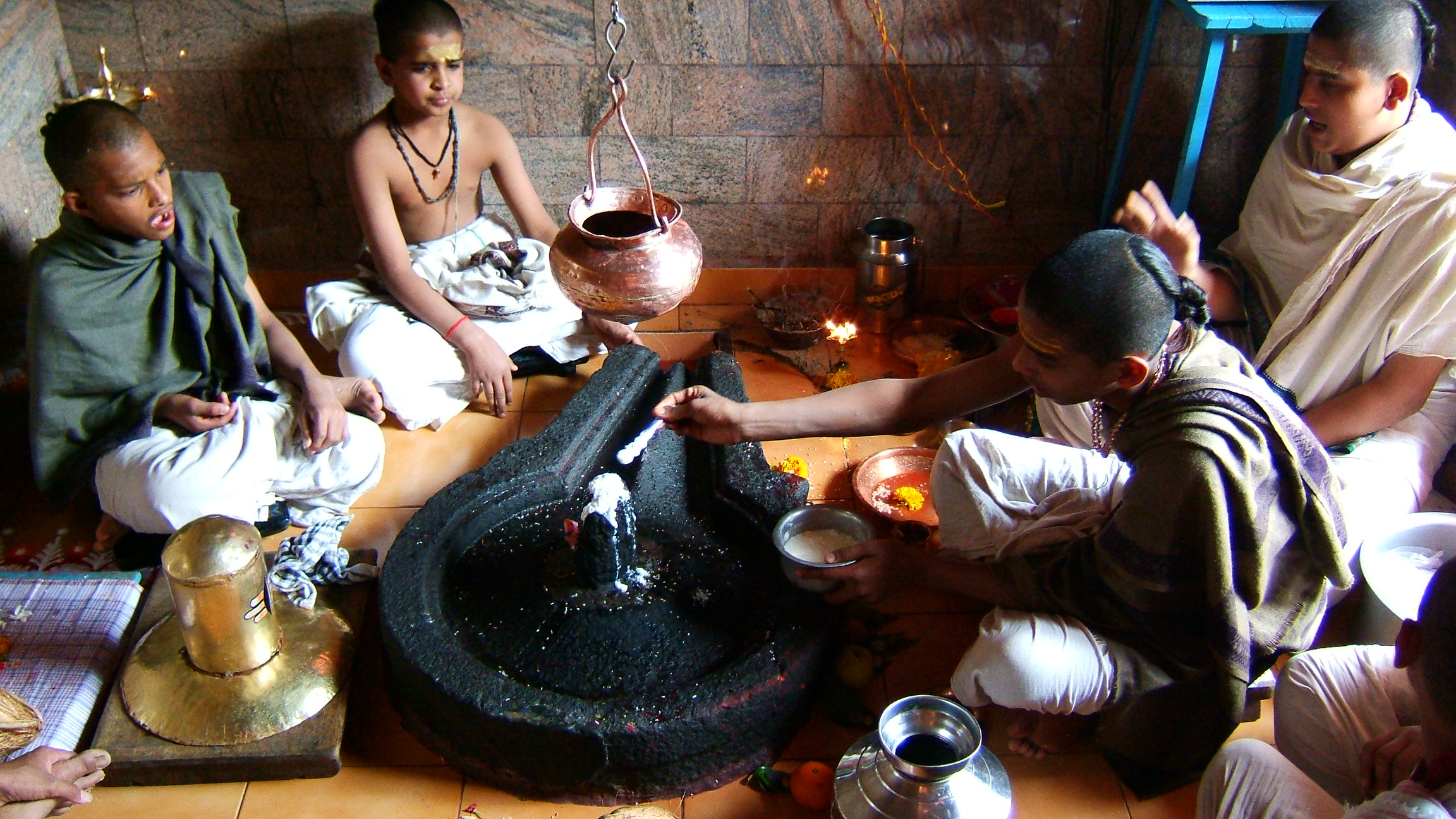Past Projects
Fellowships and Scholarships
Muktabodha's Fellowship and Scholarship Programs began in 1998 and provided support to students from around the world to undertake field research in India, including, in some cases, study with traditional pandits, particularly in the field of Hindu Tantra. These programs focused primarily on PhD-level dissertation research projects. In addition, some scholarships provided support to postgraduate students of Kashmir Śaivism and Sanskrit in India.
| Marcy Braverman-Goldstein | Adjunct Lecturer in Religious Studies University of North Carolina Kashmir Śaivism, Sanskrit, Yoga, Hatha Yoga |
| Mark Elmore | Assistant Professor of Religious Studies University of California at Davis Modern Hinduism Theory and Method in the Study of ReligionTantric Traditions; Religion and Colonialism |
| Alberta Ferrario | Visiting Assistant Professor Swarthmore College Tantric Śaivism - Grace and Devotion in the Doctrines of the Kashmiri Polymath Abhinavagupta |
| Ernst Fuerlinger | Professor of Religious Studies Head of the Center for Religion and Globalization Danube University, Austria Inter-religious dialogue, Spirituality in a Globalizing World Islam in Europe Promoting peace |
| Shaman Hatley | Associate Professor of Asian Studies and Religious Studies University of Massachusetts Asian Religions, Hinduism Sanskrit, Tantric Studies, Śaivism, Yoga, Hindu Goddess Traditions, Medieval India |
| Mrinal Kaul | Faculty/LecturerManipal Center for Philosophy and Humanities, India Abhinavagupta, Trika ŚaivismTantric literatures Kashmirian Islamic and Sufi TraditionsKashmiri and Indo-Persian literary cultures |
| Jeffrey Lidke | Associate Professor of Religious StudiesChair, Dept. of Religion & Philosophy Berry CollegeSarvāmnāya Śākta Tantra in NepalŚākta Tantra - Chaṅgu NārāyaṇaKashmir Śaivism - Abhinavagupta |
| John Nemec | Associate Professor of Religious Studies University of VirginiaClassical Sanskrit, Vedic Sanskrit, Pali, and the Prakrits Kashmir Śaivism, Tantric literature |
| Carlos Pomeda | Private Educator Yoga Sūtras, Vijñāna Bhairava, Spanda KārikāsBhagavad Gītā, Yoga for Modern Life |
| Deven Patel | Associate Professor of South Asian StudiesUniversity of PennsylvaniaŚrīharṣa’s Naiṣadhīyacarita Sanskrit, Intersection of Language, Literature, and Culture in South Asia |
| Nihar Purohit | Guest lecturerBenares Hindu University Scriptures of Kashmir Śaivāgama |
| Travis Smith | Professor of Asian Languages and CivilizationsSeoul National University, South Korea Tantric Studies; Kashmir Śaivismthe Kāśīkhaṇḍa and Śaiva Vārāṇasī Purāṇas; Purāṇic MāhātmyasKāma Sūtras; Śāstra |
| Maxim Voroshilov | PhD candidate in Buddhist StudiesMahidol University, ThailandResearcher, Writer, Interpreter, Educator Ba Gua Zhang practitioner |
| Christopher Wallis | Founder and HeadMattamayūra Institute, CaliforniaTeacher of meditation, Yoga Darśana, Tantrik philosophy, Sanskrit, and mantra-science |
| Alex Watson | Professor of Indian Philosophy Ashoka University, IndiaTeaches courses in Sanskrit and Indian philosophies |
Vedashala

In 1998, the Muktabodha Indological Research Institute founded a vedaśāla in Satara, India, to help ensure that the knowledge and chanting of the Kṛṣṇa Yajur Veda mantras, and the wisdom they embody, would be preserved for future generations as a living oral tradition. The vedaśāla has grown into a respected institution, honored by Vedic authorities for the quality of its teaching and the accomplishments of its students.
The vedaśāla is credited with preserving the Taittirīya Hiraṇyakeśin school of the Kṛṣṇa Yajur Veda, an especially endangered element of Vedic tradition. Now, as senior students graduate, they themselves are becoming teachers, as well as practitioners, thus re-establishing and preserving the living tradition in which they have been trained.
With the vedaśāla project attaining this point of maturity, MIRI’s vision for the project had been fulfilled, and responsibility for the vedaśāla was passed to the Krishna Yajur Veda Trust. It now functions as an independent organization.
